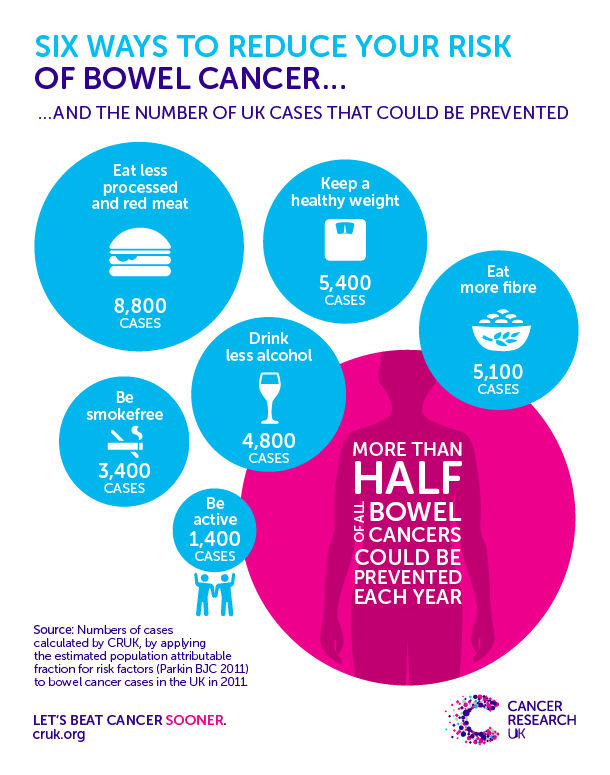
Simple Lifestyle Changes to Reduce Your Risk of Colon Cancer
Colon cancer is one of the leading causes of cancer-related deaths worldwide. However, research has shown that making simple lifestyle changes can significantly reduce your risk of developing this disease. By adopting healthy habits and making conscious choices in your daily life, you can protect yourself against colon cancer and promote overall well-being. Here are some key lifestyle changes that can help reduce your risk of colon cancer.
1. Eat a healthy diet:
The first step in reducing your risk of colon cancer is maintaining a healthy diet. Include ample amounts of fruits, vegetables, whole grains, and legumes in your daily meals. These foods are rich in antioxidants, vitamins, minerals, and fiber, which have been associated with a decreased risk of colon cancer. Avoid processed foods, excessive red meat consumption, and foods high in unhealthy fats as they have been linked to an increased risk.
2. Increase your fiber intake:
A high-fiber diet is beneficial in preventing colon cancer. Consuming an adequate amount of fiber helps regulate bowel movement, thereby reducing the time stool spends in the colon. This decreases the contact between carcinogens and the colon lining. Consider including fiber-rich foods such as brown rice, whole wheat bread, oats, and lentils in your diet.
3. Limit alcohol consumption:
Excessive alcohol intake has been linked to an increased risk of colon cancer. It is advisable to limit your alcohol consumption to moderate levels. Women should have no more than one drink per day, while men should limit themselves to two drinks per day. Remember, moderation is key.
4. Quit smoking:
Smoking is a well-known risk factor for various types of cancer, including colon cancer. Smoking exposes your body to harmful carcinogens that can damage the colon cells and increase your risk of developing cancer. If you are a smoker, take steps to quit smoking to reduce your risk of colon cancer, as well as other health-related issues.
5. Get regular exercise:
Regular physical activity not only keeps you in shape but also reduces your risk of developing colon cancer. Engaging in moderate-intensity exercise, such as brisk walking, swimming, or cycling, for at least 150 minutes per week is recommended. Exercise helps regulate bowel movements and reduces inflammation in the colon, which can protect against cancer development.
6. Maintain a healthy weight:
Being overweight or obese increases the risk of colon cancer. Therefore, maintaining a healthy body weight is vital. Combine a balanced diet with regular exercise to achieve and sustain a healthy weight. It is advisable to aim for a body mass index (BMI) within the healthy range of 18.5 to 24.9.
7. Screen for colon cancer:
Regular screening and early detection are crucial in preventing colon cancer or catching it at an early stage. Follow the recommended guidelines for colon cancer screening based on your age, family history, and other risk factors. Tests such as colonoscopies, fecal occult blood tests, and sigmoidoscopies are commonly used to detect and prevent colon cancer.
8. Reduce stress levels:
High levels of chronic stress can have a negative impact on your overall health, including increasing the risk of colon cancer. Explore stress-reducing techniques such as meditation, yoga, deep breathing exercises, or engaging in hobbies you enjoy. Make self-care a priority to mitigate stress and promote better overall health.
9. Stay hydrated:
Drinking an adequate amount of water is essential for maintaining optimal colon health. Water helps keep the stool soft and moving smoothly through the colon, reducing the risk of constipation and decreasing the exposure time to colon carcinogens. Aim to drink at least 8 glasses of water per day.
10. Be aware of your family history:
If you have a family history of colon cancer, it is crucial to be aware of this risk factor. Talk to your doctor about your family history to determine when to begin colon cancer screening. They may recommend earlier and more frequent screenings to catch any potential issues at their earliest stages.
In conclusion, preventing colon cancer starts with simple lifestyle changes. By adopting a healthy diet, increasing fiber intake, limiting alcohol consumption, quitting smoking, engaging in regular exercise, maintaining a healthy weight, screening for colon cancer, reducing stress levels, staying hydrated, and being aware of your family history, you can significantly lower your risk of developing this disease. Remember, small changes can have a big impact on your health, so start incorporating these habits into your life today.












